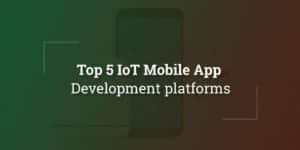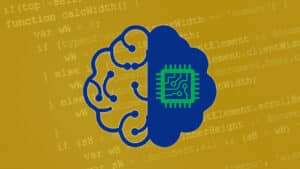In today’s digital age, data scrapers are increasingly being used for various purposes such as data analysis, marketing, and research. Data scraping is a technique that involves extracting information from websites and databases using automated scripts or bots. Programming languages play a crucial role in building these data scrapers, as they provide the foundation for the development of these scripts.
The ability to choose the right programming language for the job can make a significant difference in the efficiency and effectiveness of a data scraper. Therefore, it is important to have an understanding of the programming languages that are commonly used for building data scrapers.
Most Popular Programming Languages for Data Scraping
When it comes to data scraping, there are several popular programming languages that are widely used by developers. Some of the most commonly used programming languages include Python, JavaScript, Ruby, and PHP. Each of these languages has its own unique features and strengths that make them ideal for data scraping projects.
For instance, Python is known for its simplicity, readability, and ability to handle large amounts of data, while JavaScript is popular for its versatility and ability to interact with web pages in real-time.
Python is often the top choice for developers due to its wide range of libraries, such as Beautiful Soup and Scrapy, that make it easy to scrape data from websites. JavaScript, on the other hand, is known for its ability to interact with web pages and its asynchronous features, which make it ideal for real-time web scraping. Ruby is a dynamic and high-level language that is simple to read and write, making it a popular choice for beginners.
Finally, PHP is widely used for web development and has a wide range of libraries and frameworks that make it ideal for scraping web data efficiently. Understanding the strengths and weaknesses of each programming language can help developers choose the right programming language for their data scraping needs.
Applications of Data Scraping
Data scraping is a powerful tool used in a variety of industries and fields, including finance, marketing, and e-commerce. In finance, data scraping is used to collect and analyze market data to inform investment decisions. In marketing, data scraping is used to gather customer insights, identify trends, and conduct competitive research. In e-commerce, data scraping collects product information from various websites to inform pricing and inventory decisions.
Data scraping is also utilized by background-checking sites, such as Instant Checkmate. This technique enables them to gather relevant information that can be utilized in conducting background checks for a range of purposes, including pre-employment screening and tenant screening. Those interested in learning more about this service may want to check out the Instant Checkmate review to get a better understanding of its features and offerings.
By using data scraping techniques, background-checking sites can collect information from various public sources, such as court records and social media profiles, to provide their clients with a comprehensive report on an individual’s background.
In addition to the potential benefits of data scraping for various industries, there are also ethical concerns and risks associated with its use. One of the primary risks of data scraping is the potential violation of individual privacy. To address these risks, it is crucial for industries and businesses to ensure they are using data scraping in an ethical and responsible manner, taking steps to protect individuals’ privacy, and verifying the accuracy of the information obtained through this method.
Risks and Limitations of Data Scraping
Data scraping presents several potential legal and ethical issues, particularly regarding privacy concerns. As data scraping involves accessing and collecting data from various sources without consent, it can lead to violations of individual privacy rights. Additionally, using data scraping to collect personal information may be against the terms of service or even illegal for certain websites. It is crucial for businesses and individuals to be aware of the legal and ethical implications of data scraping and to use it responsibly.
Despite its usefulness, data scraping has its limitations. One of the main limitations is accuracy. Since data scraping relies on automated tools to extract data, errors or missing information are always possible. Additionally, some websites may block or limit access to certain data, making it difficult or impossible to scrape. Therefore, while data scraping can provide a lot of valuable information, it is important to keep in mind its limitations and potential inaccuracies.
Future of Data Scraping and Programming Languages
Data scraping technology is constantly evolving, and this section will provide an overview of the future trends in data scraping and the programming languages used to build them. As data becomes increasingly important in various industries, more sophisticated and advanced data scraping tools and techniques are being developed.
In addition, programming languages are also evolving to better support data scraping, with new libraries and tools being created to streamline the process. This section will explore these trends and what they mean for the future of data scraping.
As data scraping becomes more advanced and ubiquitous, it will likely have significant implications for various industries and society as a whole. For example, data scraping can provide valuable insights for businesses, governments, and researchers, allowing them to make more informed decisions and develop better products and services.
At the same time, it is important to consider the potential risks and ethical concerns associated with data scraping and to ensure that these tools are used in a responsible and transparent manner. This section will examine these potential implications and how they might shape the future of data scraping and programming languages.
What We Learned
Nowadays, data scraping has become increasingly prevalent in various industries, with many businesses and organizations utilizing programming languages to build and operate these tools. This article has provided an overview of the most popular programming languages for data scraping, as well as their unique features and the potential risks and limitations associated with their use. While there are legal and ethical issues associated with data scraping, it can provide benefits for industries and society.
The future trends in data scraping and programming languages have also been discussed, highlighting the potential implications for industries and society. It is important to understand the role of programming languages in data scraping, as well as the ethical and legal considerations, in order to make informed decisions regarding the use of these tools in the future.


